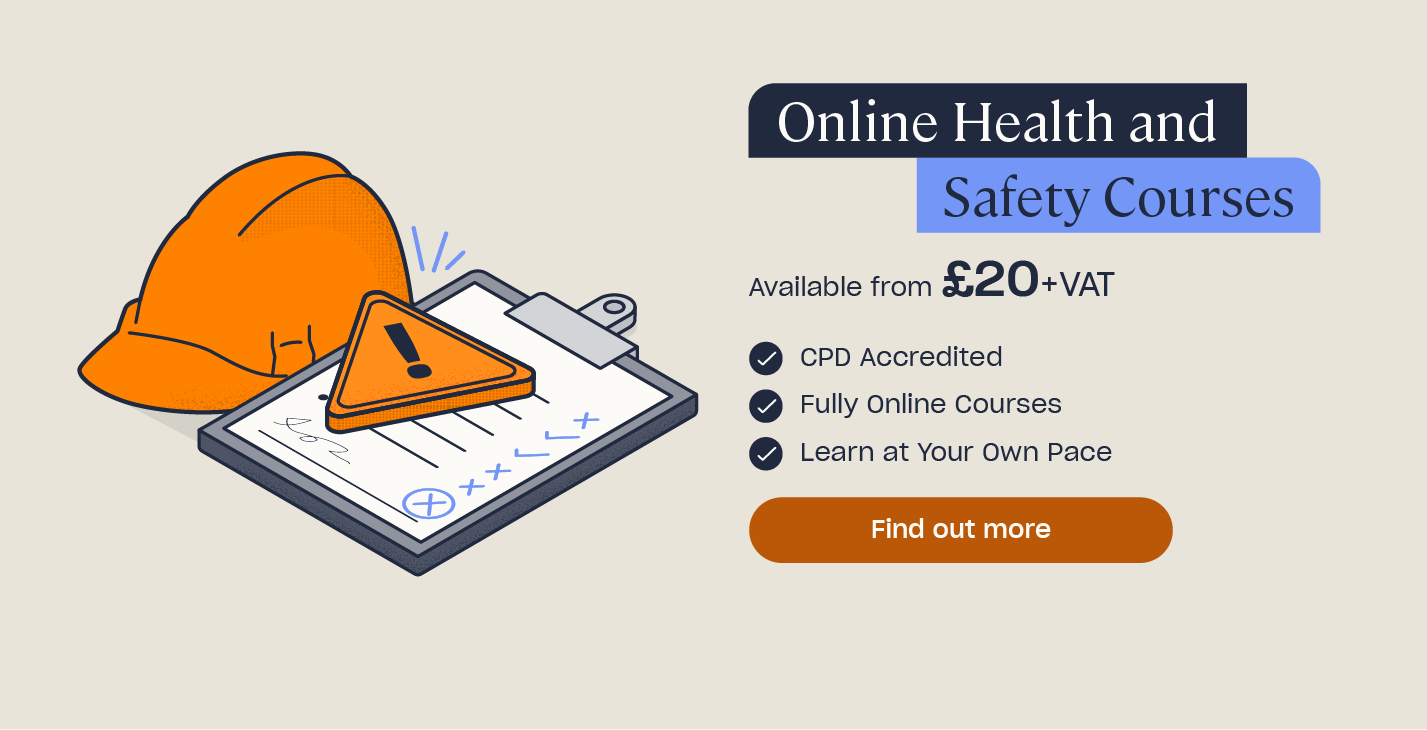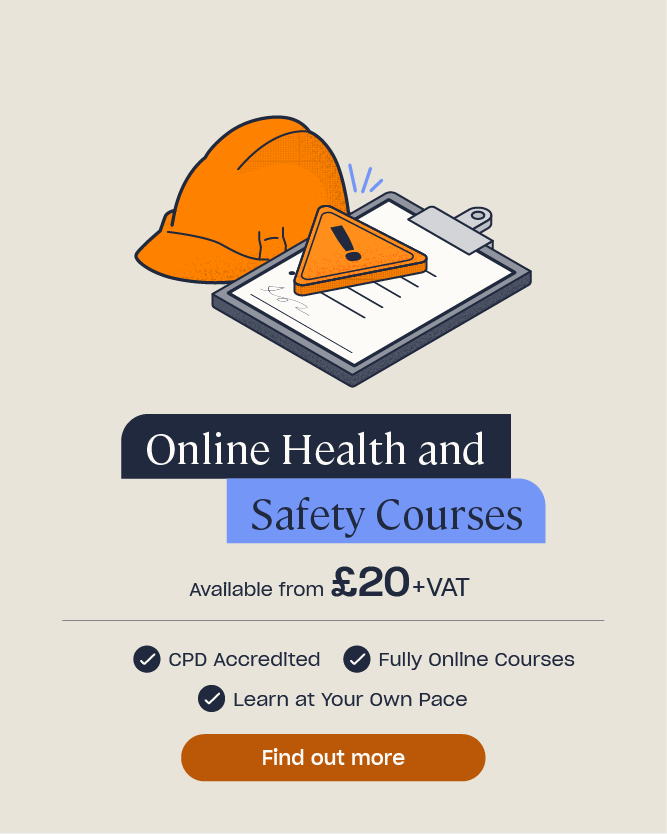How to Become a Site Manager
If you’re interested in becoming a site manager, then you’ll need to know exactly what the job role entails and what skills and qualifications you’ll need to get employed. Whether you currently work in the construction industry and are looking to progress your career as a site manager or are new to the profession completely, this article will outline everything you need to know. We’ll look at what a site manager does, the qualifications, knowledge and training you’ll need to become a site manager and what the main responsibilities of a site manager are.
What is a Site Manager?
A site manager, sometimes referred to as a Construction Manager or Project Manager, is the person responsible for supervising construction projects from start to finish. The site manager oversees construction sites to ensure projects are completed in accordance with regulations, within budget and in the time frame agreed.

Site managers can be employed by a variety of companies, such as house builders, property developers, construction companies and infrastructure firms, and they may be hired as a contractor or be directly employed by the company.
An experienced site manager can earn up to £50,000 per year and is expected to work wherever the construction site is located, so may face a long commute or have to relocate for an extended period of time.
What Does a Site Manager Do?
Site managers have a high level of responsibility and are often in charge of construction projects from before they begin until after they are finished. They may have responsibility for the entire project or just part of a project, depending on their seniority and areas of expertise.
The site manager carries out a variety of roles and no two days will be the same. Tasks are related to areas such as; legal compliance, administration, providing safety advice, managing the budget, communicating with workers and contractors, ordering resources and ultimately, ensuring the job gets done on time.

Site Manager Responsibilities
Key responsibilities of a site manager include:
- Project management and overseeing a project from start to finish.
- Ensuring the project meets the client’s requirements and specifications.
- Reviewing progress of the project and getting it back on track if necessary.
- Monitoring costs throughout the project.
- Coordinating, supervising and communicating with construction workers.
- Hiring and coordinating subcontractors.
- Liaising with clients, contractors and others about the project.
- Preparing site reports and managing paperwork.
- Securing contracts, licences and permits.
- Identifying and buying the right resources, tools and materials for the project.
- Carrying out site safety inspections.
- Ensuring health and safety compliance.
- Maintaining quality control checks.
- Continually assessing and minimising risks with a risk assessment.
- Problem-solving and handling any project issues that arise.
Looking to Learn More?
An effective site manager needs to understand all aspects of construction health and safety and recognise how to ensure their project complies with safety regulations. Our online Health and Safety for Managers course provides you with a thorough understanding of all the key health and safety topics that site managers need to know.
What Qualifications Do You Need to Be a Site Manager?
There are various routes into becoming a site manager, so choose the one that’s best suited to you and your preferred way of learning. If you already work in the construction industry then you already have the basic knowledge needed to become a site manager and may choose to enter the profession via an apprenticeship or college course. Alternatively, if you’re new to the industry, you may prefer to take a university course or find some hands-on work experience.
Alongside a site manager qualification, you’ll also need a valid Construction Skills Certification Scheme (CSCS) card to work on a construction site and membership with the Chartered Institute of Building would be beneficial. Bear in mind the time and costs associated with obtaining these extra certificates if you plan to enter this line of work.

The qualifications you need to be a site manager include:
Site Manager College Courses
A college course in site management enables you to learn everything you need to know to become a site manager, including essential knowledge on health and safety legislation, how to implement industry best practice, environmental considerations, planning skills and resourcing.
Examples of relevant courses are a Level 6 NVQ in Construction Site Management, a HMC in Construction or a HND in Construction Management. To take a college course in site management, you’ll need at least two GCSEs at grades 9 to 3 (A* to D), or equivalent.
Site Manager Apprenticeships
An apprenticeship within an established construction firm is a great way to enter the industry and gain valuable, practical experience alongside your college lessons. You may also end up being employed by the construction firm as a Junior Site Manager at the end of your apprenticeship.
Examples of relevant apprenticeships are an apprenticeship in Construction Site Management or a higher apprenticeship in Construction Site Management. Each one takes 2-4 years to complete and you’ll need at least two GCSEs for a standard apprenticeship, including English and maths, or 4-5 GCSEs for a higher level apprenticeship.
Site Manager University Courses
An undergraduate, postgraduate or foundation degree in a construction related subject can help you to enter the site manager profession at a more senior level. Relevant university subjects include civil engineering, building studies, construction management, project management and surveying. Depending on the employer, you may need to achieve a particular grade to become a site manager for their company.
Site Manager Work Experience
Carrying out some work experience alongside an existing site manager in the construction industry is a great way to gain insider knowledge and experience of the role. Work experience is usually voluntary and unpaid and may require you to work during holidays but it can be highly attractive to potential employers if you have some work experience on your CV.
Site Manager Health and Safety Training
To be a successful site manager, you must prioritise health and safety at all times and recognise the importance of following rules and regulations whilst construction projects are being carried out. Not only does the project itself need to be legally compliant, but so too do any on-site workers and contractors.
High Speed Training has a wide range of health and safety awareness courses that are ideal for site managers and the employees they oversee. All the courses can be completed online and come with a certificate to put on your CV at the end. Some of the awareness level courses on offer include:
- Health and Safety Training for Managers
- Risk Assessment Training
- CDM Regulations
- Permit to Work Training
- Health and Safety Training for Employees
- Asbestos Awareness
- Working at Height
- Manual Handling Awareness
- Working in Confined Spaces
- LOLER Training
You can access our full catalogue of online health and safety training courses here.
Site Manager Skills
As well as being able to carry out the practical, day-to-day tasks associated with site management (your hard skills), a competent site manager also needs to possess a range of soft skills to be successful in their role.
Examples of essential site manager skills are:
- Knowledge of the construction industry as a whole.
- An understanding of building regulations, such as the Building Safety Act.
- Knowledge and application of health and safety procedures.
- Problem-solving skills.
- Logical thinking.
- Ability to make decisions.
- Excellent verbal communication skills.
- Motivation skills.
- Teamwork.
- Leadership skills.
- Negotiation skills.
- Time management skills.
- Project management skills.
- Ability to understand technical drawings and diagrams.
- Understanding of quality control.
All construction sites require a competent site manager who can ensure construction projects run efficiently, to budget and on-time, starting from before the projects begin until after the jobs have been completed. Possessing the right skills and qualifications to be a site manager will ensure you’re successful in the role and can go on to be a highly-regarded site manager in the construction industry.
Further Resources:
- Online Health and Safety Courses
- How to Become a Project Manager
- Careers in Construction Industry: Opportunities and Roles
- How to Become a Construction Worker











